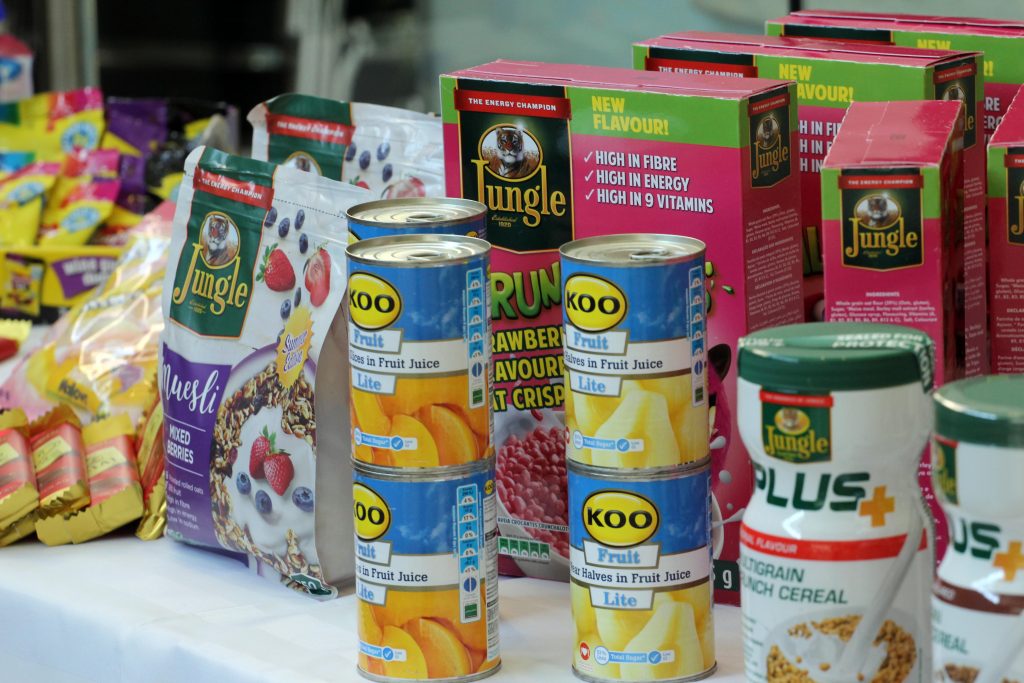Strike action at Tiger Brands shears R120m off operating income

Listed fast-moving consumer goods (FMCG) giant Tiger Brands revealed in a voluntary trading update on Wednesday that industrial action at its key bakeries and ‘snacks & treats’ business units in the last quarter of 2021 cost the group R120 million in operating income.
This was one of the contributors to a 1% fall in group revenue for the period.
Tiger Brands, which owns well-known FMCG names like Jungle Oats, Beacon, Albany, Koo and Tastic, reported that its bakeries, snacks & treats and rice categories were the major drivers behind the fall in group revenue.
It says intense price competition, illegal work stoppages as well as supply challenges were some of the issues which impacted sales in these categories. The group’s rice unit saw deflation in prices as a result of declining international rice prices.
“Bakeries experienced significant volume losses as a result of intense price competition, compounded by rising cost pressures and illegal work stoppages in October and November,” Tiger Brands notes in its latest JSE Sens update.
Supply challenges resulting from an eight-week labour disruption in November and December also affected the company’s snacks & treats unit, which was made worse by low opening stocks of finished products post the July unrest.
“The impact of the industrial action referred to above, at an operating income level, amounted to R120 million for the three months to December 2021. Although the Snacks & Treats business has made significant progress in restoring supply, it is anticipated that full supply will only be achieved in
July 2022,” the company says.
In November, workers at the group’s Beacon Sweets and Chocolate factory in KwaZulu-Natal embarked on a wage strike. The workers, members of the African Meat Industry and Allied Trade Union (Amitu), were asking Tiger Brands for a 7% wage increase.
In October the group experienced a wildcat strike at its Albany bread factory in Germiston, Gauteng.
Global supply chain issues
Meanwhile, Tiger Brands says the company has not been immune to the global supply chain squeeze.
“We have experienced challenges in managing raw material, ingredients and packaging availability, timeous supply, as well as significant cost increases.
“The inability to pass through unanticipated cost push resulted in margin compression in the first quarter. This is likely to be ameliorated in the second quarter as selling price increases are being implemented. The impact of these price increases on volumes is being carefully managed.”
The group points out that excluding the abovementioned categories, it saw 3% revenue growth in the period, which constitutes 1% volume growth and 2% price inflation.
A four-month assessment (to the end of January 2021) of the group’s performance sees a marginal recovery for the snacks & treats and bakeries businesses, with revenue going up 1%.
Cost savings
Following the recall of about 20 million canned vegetable Koo and Hugo products and the impact of the July unrest, which cost the company R732 million pre-tax, Tiger Brands set the target to slash R450 million worth of costs for its 2022 financial year.
The group reported that its product recall related insurance claim is being processed and that it has received confirmation of an interim payment of 30% of its total claim.
“We have, in the meantime, received confirmation of an interim payment of R17 million, relating to the operational and logistics costs of implementing the recall.”
Tiger Brands, which has registered 52-week lows in its share price recently, says despite seeing a poor start to the financial year, it remains focused on accelerating its cost saving initiatives and supply chain efficiencies.
Equity analyst at Afrifocus Securities Tinashe Kambadza tells Moneyweb the food producer remains a good business, despite its woes.
“Tiger Brands still remains the biggest food producer in the country, they’ve got the strongest balance sheet amongst all of the food producers.
“However, because … they are as big as they are and they do have economies of scale, relative to their competitors, their portfolio makes it less nimble,” says Kambadza.
“That is why in an environment like where we are right now the strategy of cost containment and efficiencies kind of makes sense because of the fact that you’re not seeing organic growth in this particular market.”
He adds that despite the strength of the Tiger Brands business, there could be room for improvement for the company when it comes to strategy.
“As the largest of the producers, one would expect such a company to always be proactive in the context of staying ahead of the competition.”
In the trading update, Tiger Brands noted that it has registered significant market share losses in the bread category, saying that recovering those losses is an immediate priority.

